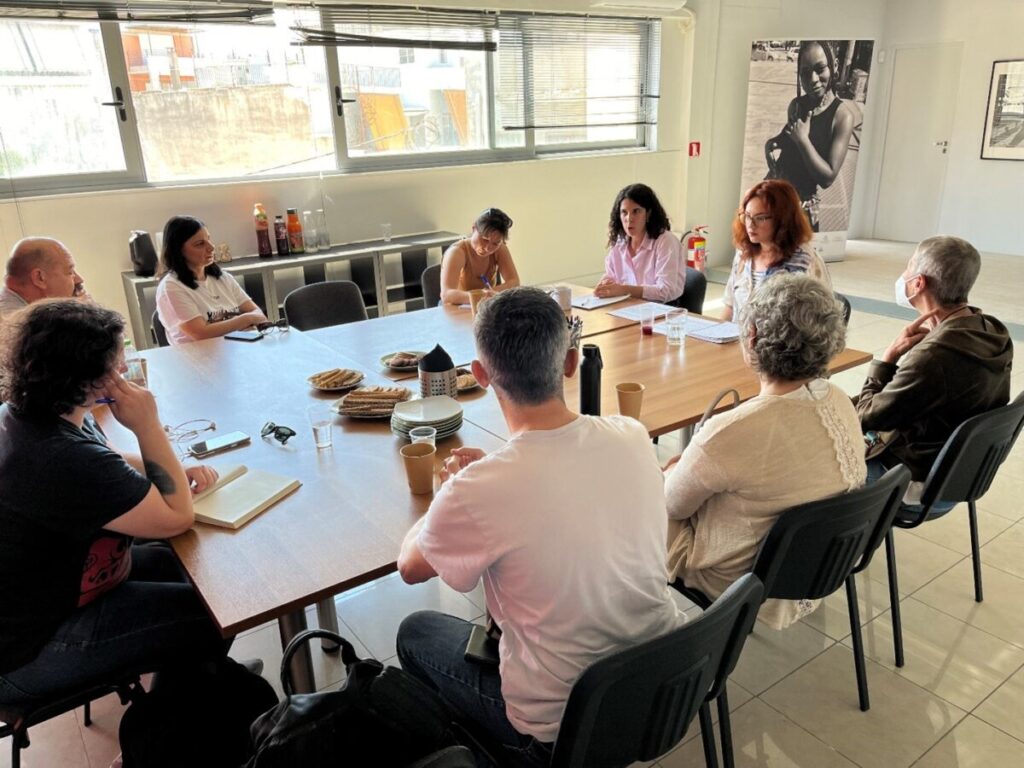Citizenship and social rights for disabled and elderly migrants

Our new advocacy project on fair access to social rights and citizenship.
About 700,000 third country nationals (TCNs) live lawfully in Greece with residence permits under the Migration Code. The most vulnerable, such as the elderly and people with disabilities, are excluded from citizenship and social rights due to oversights in the legislation and administrative gaps. Discrimination regarding access to disability benefits, pension and other procedures such as Greek citizenship acquisition, although they contradict with the Charter of Fundamental Rights of the EU, are not known, have not been studied and have not been sufficiently highlighted. Under Access, our new project, Generation 2.0 aims on the one hand to monitor the national legislative framework, record good practices in EU member states, submit proposals to the state to address discrimination and raise awareness on these issues. On the other hand, the empowerment of vulnerable TCNs (mainly people with disabilities and the elderly) through individualised legal counseling. This project is co-funded by the European Union, the Bodossaki Foundation and the NGO Support Centre.
Legal Counselling
Our legal team has already provided individual legal advice to approximately 20 beneficiaries with the aim of empowering and supporting them in their applications regarding a) legal status, b) access to citizenship and c) disability allowance. Priority was given to vulnerable women in view of intersectional discrimination.
Focus Groups

In order to highlight the above issues, exchange knowledge, experience and good practices as well as gather information on the gaps and needs that exist in relation to these issues, Generation 2.0 RED organised two focus groups, inviting members of migrant communities as well as representatives of relevant institutions and members of civil society.
On 28th of May 2024, the facilitation of the first focus group took place. Eight participants of migrant background, including representatives from migrant communities, attended the meeting with the goal to identify specific cases and common problems regarding: a) access to financial support for migrants with disabilities b) access to citizenship for migrants with disabilities c) access to pension for migrants d) access to legal status for elder migrants.
On 14th of June 2024, the facilitation of the second focus group took place with ten participants from representing the government, state institutions and relevant stakeholders (Ministry of Migration, Ministry of Labor, General Secretariat of Citizenship, Directorate of Aliens and Migration, Agency for Welfare Benefits and Social Solidarity, Coalition of People with Disabilities, Vice Mayor on Migrant and Refugee Integration). The goal of the meeting was to identify gaps and barriers as well as good practices in the law and administrative practice regarding: a) access to financial support for migrants with disabilities b) access to citizenship for migrants with disabilities c) access to national pension for elder migrants d) access to legal status for elder migrants.
The longer-term goal of these meetings is to utilize its outcomes for advocacy purposes (capacity building, coalition building, awareness raising, lobbying) and support the development of proposals to improve the effectiveness of policies and administrative practices on these issues.
Questionnaires
Based on desk research and the outputs of the two focus groups, we prepared a curated questionnaire on citizenship and social rights issues for migrants with disabilities and the elderly in the EU. The questionnaire was disseminated in June 2024 to European CSOs working on similar issues to exchange know-how and good practices. We made a big outreach effort reaching out to various NGOs and networks in the EU to exchange knowledge on this issue. We established new connections with three NGOs in Sweden, UK and Malta and reached out to ENS (European Statelessness Network) to support our outreach effort. This outreach effort, however, came with its own set of challenges due to limitations regarding expertise required by organisations to address these issues. While the responses we collected highlight the gaps in law and administrative practice in other EU countries as well, the low rate of responses reveals the gaps and deficiencies that exist in CSOs’ knowledge and engagement with these issues not only in Greece but also in the EU as a whole.
Memoranda
Based on extensive research and the outputs from the focus groups, we also developed four memos addressing a) access to financial support for migrants with disabilities b) access to citizenship for migrants with disabilities c) access to national pension for elder migrants d) access to legal status for elder migrants. These memos were sent to relevant state officials and authorities and more specifically to the Secretary General of Migration Policy, the Secretary General of Citizenship, the Secretary General of Social Security and the General Director of the Organisation of Welfare Benefits and Social Solidarity. G2RED is currently arranging dedicated meetings with the receiving authorities in order to advocate for specific legal and administrative changes that can improve access to citizenship and social rights for these groups.
“The Access project is implemented within the framework of the BUILD program, with Generation 2.0 for Rights, Equality & Diversity as the implementing agency.
The “Building a robust and democratic civic space” (BUILD) program aims to protect, promote and widely recognize the fundamental rights and values of the EU, through the support of Civil Society organizations in Greece and Cyprus and strengthening their capacities and sustainability. BUILD is co-financed by the European Union, through the Citizens, Equality, Rights and Values (CERV) program, the Bodosaki Foundation and the Cyprus NGO Support Center with a total grant amount of €2.9 million. The coordinator of BUILD is the Bodosaki Foundation ( Greece) in partnership with the NGO Support Center (Cyprus)”.


 Ελληνικά
Ελληνικά

